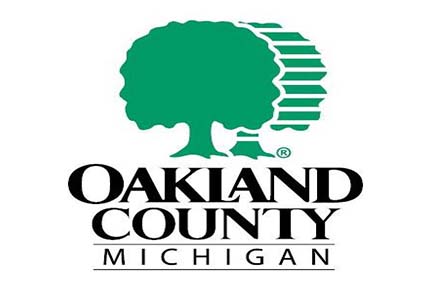
FOR IMMEDIATE RELEASE
Five Michigan Main Street communities receiving a total of $100,000 in grants for downtown improvement projects
LANSING, Mich. – Governor Gretchen Whitmer joined the Michigan Economic Development Corporation (MEDC) to announce that five communities around Michigan have been awarded a total of $100,000 in grants to support downtown enhancement and improvement projects, the Michigan Economic Development Corporation announced today.
Communities receiving grants are Lansing, Owosso, Grayling, Blissfield and Three Rivers.
“Thriving, attractive downtowns are vital to creating unique places where people want to live, work, visit and play,” said Governor Gretchen Whitmer. “With today’s grants, these communities are taking important steps toward strengthening their core commercial districts and driving economic growth in the community. As we jumpstart our economy and begin a quintessential Michigan summer, I am excited for vibrant downtown areas to be full of life once again.”
The Main Street Vibrancy Grant Program is intended to provide grants of $20,000 to Select or Master level Michigan Main Street communities for projects that enhance the vibrancy and economic vitality of Michigan Main Street downtowns. Projects could include pop-up shop programs, implementation of a marketing or advertising campaign, physical improvements such as new seating, seasonal infrastructure, signage, or art, and other transformative projects that help create a sense of place and a more vibrant community.
2021 Main Street Vibrancy Grant winners (see below for quotes from each of the winning organizations):
|
|
|
|
Grayling Downtown Development Authority
|
Downtown clock, outdoor seating, sanitation stations, crosswalk art, wayfinding
|
|
Blissfield Downtown Development Authority
|
Mini-park revitalization and gazebo for food truck park, art events, outdoor space activation
|
|
Owosso Downtown Development Authority
|
Streetscape – flower beds, benches, bike racks
|
|
|
|
|
|
Three Rivers Downtown Development Authority
|
Downtown in bloom – public art upgrades to murals and art inspired banners, lighting, bistro seating, outdoor games (chess and ping pong tables)
|
|
“These communities have all worked diligently to enhance the sense of place and vibrancy in their downtowns, engage residents and businesses, and drive economic growth,” said Michelle Parkkonen, Director of Community Development Technical Assistance Programs at the MEDC. “Today’s Vibrancy grants will help further strengthen the downtowns and commercial districts in these communities, helping their businesses grow while also building unique places that are attractive to residents and visitors.”
The Michigan Main Street Center supports local communities across Michigan as they implement the Main Street Four-Point Approach®, a community-driven, comprehensive strategy encouraging economic development through historic preservation in ways appropriate for the modern marketplace. The program aims to create communities distinguished by a “sense of place.” The rationale is based on a range of studies that show investing in creating a sense of place is an integral part of developing vibrant city centers and downtowns, thereby making the state economically stronger and culturally diverse.
As part of the Select Level of Michigan Main Street, communities receive five years of intensive technical assistance from MEDC with a focus on revitalization strategies designed to attract new residents, business investments, economic growth and job creation to their central business districts.
After communities have completed the Select Level of the program, they can participate in the Master Level, a two-year commitment that includes additional training and networking and mentoring opportunities.
The 24 communities currently participating in the Michigan Main Street at the select and master levels are Blissfield, Boyne City, Charlevoix, Charlotte, Cheboygan, Downtown Lansing, Eaton Rapids, Evart, Grand Haven, Grayling, Grosse Pointe, Howell, Lapeer, Mexicantown Hubbard Communities (Detroit), Milan, Niles, Historic North End (Detroit), Old Town (Lansing), Otsego, Owosso, Saline, Sault Ste. Marie, Three Rivers, and Wayland.
Over the past year, Michigan Main Street communities generated more than $13 million in private investment, 87 new businesses and 149 façade and building improvements. Since its inception in 2003, the Michigan Main Street has been a catalyst for job growth, private investment and community engagement. From 2003 through 2018, 1,495 new businesses have been launched, with a total public investment of over $115 million and total private investment of $319 million. In addition, more than 773,507 volunteer hours recorded by Michigan Main Street communities in revitalizing downtowns across the state.
“The Blissfield Main Street is excited to create a vibrant mini park in our downtown. The grant funds we are receiving will have positive impact on our project. The space we are creating will allow people to gather and enjoy art, music, food, and friends,” said Blissfield Main Street Executive Director Heather Marks. “This project will also help us build a sense of place in our Main Street district. Our mini park project ties into our transformation strategy and allows our community the opportunity to reach our overarching goals for Blissfield Main Street. We are thankful to have the extra funding to allow us to complete our mini park.”
“We are looking forward to working with the Michigan Main Street and MEDC team through the Vibrancy Grant program. Over this past year, Downtown Lansing Inc. has prioritized programming centered around providing small business support,” said Downtown Lansing Inc. Executive Director Cathleen Edgerly. “This grant and Downtown Lansing Incubator will allow us to cultivate small scale development from the inside out, building a stronger sense of community as we empower and offer a soft launching point for start-ups with a centralized and hyper-focused support system for entrepreneurship in the downtown district.”
“Each year, Grayling Main Street strives to make a lasting change to our outdoor environment, bike racks, benches, trees, and such. This year, with Vibrancy Grant funds, we will be able to mark off a long-awaited lasting fixture for our downtown, a town clock,” said Grayling Main Street Executive Director Rae Gosling. “The installation of the clock on our 100 block, coupled with adding new wayfinding signage and additional outdoor seating is going to add a tremendous amount of positive energy to an area of our downtown that has struggled to reenergize.”
“As our district evolves out of the pandemic, this MMS Vibrancy Grant is catalytic funding that will aid in the reactivation of our downtown streetscape,” said Owosso Main Street/DDA Executive Director Josh Adams. “We continue to appreciate our partnership with Michigan Main Street and their support of our community.”
“We are thrilled to be a recipient of the Main Street Vibrancy Grant. This grant will allow us to accomplish great things in our Downtown as we anticipate a continued surge in foot traffic and new visitors with the announcement of our newly designated Social District called ‘Main Street Commons,’ said Three Rivers Main Street Executive Director Tricia Meyer. “We are a small community with big dreams and limited resources and this funding will enable us to further transform our charming Downtown into a vibrant place to explore.”
About Michigan Economic Development Corporation (MEDC)
The Michigan Economic Development Corporation is the state’s marketing arm and lead advocate for business development, job awareness and community development with the focus on growing Michigan’s economy. For more information on the MEDC and our initiatives, visit www.MichiganBusiness.org. For Pure Michigan® tourism information, your trip begins at www.michigan.org. Join the conversation on: Facebook, Instagram, LinkedIn, and Twitter.
|




 Several state parks in southern Michigan will host volunteer stewardship workdays in June. Volunteers are needed to help with removing invasive plants that threaten high-quality ecosystems in the parks.
Several state parks in southern Michigan will host volunteer stewardship workdays in June. Volunteers are needed to help with removing invasive plants that threaten high-quality ecosystems in the parks.
 The DNR responsibly manages 3.9 million acres of state forest land using such techniques as timber harvests, tree thinning, planting and prescribed burns to keep forests thriving and healthy.
The DNR responsibly manages 3.9 million acres of state forest land using such techniques as timber harvests, tree thinning, planting and prescribed burns to keep forests thriving and healthy.
 Want to learn more about the DNR’s state land review process and how the department makes decisions about which parcels best meet its mission to provide public access to quality outdoor recreation opportunities? Mark your calendar for upcoming meetings (June 8 and 9) where DNR land managers will discuss recommendations for the second group of 10 counties under review: Antrim, Arenac, Grand Traverse, Hillsdale, Iosco, Iron, Kalamazoo, Luce, Ontonagon and Van Buren.
Want to learn more about the DNR’s state land review process and how the department makes decisions about which parcels best meet its mission to provide public access to quality outdoor recreation opportunities? Mark your calendar for upcoming meetings (June 8 and 9) where DNR land managers will discuss recommendations for the second group of 10 counties under review: Antrim, Arenac, Grand Traverse, Hillsdale, Iosco, Iron, Kalamazoo, Luce, Ontonagon and Van Buren.




